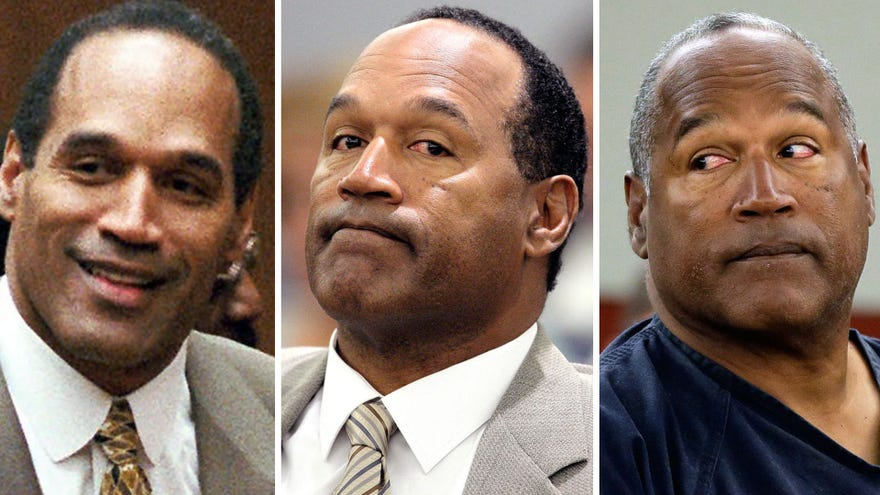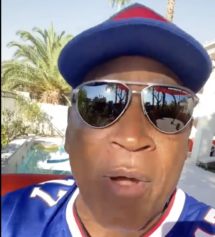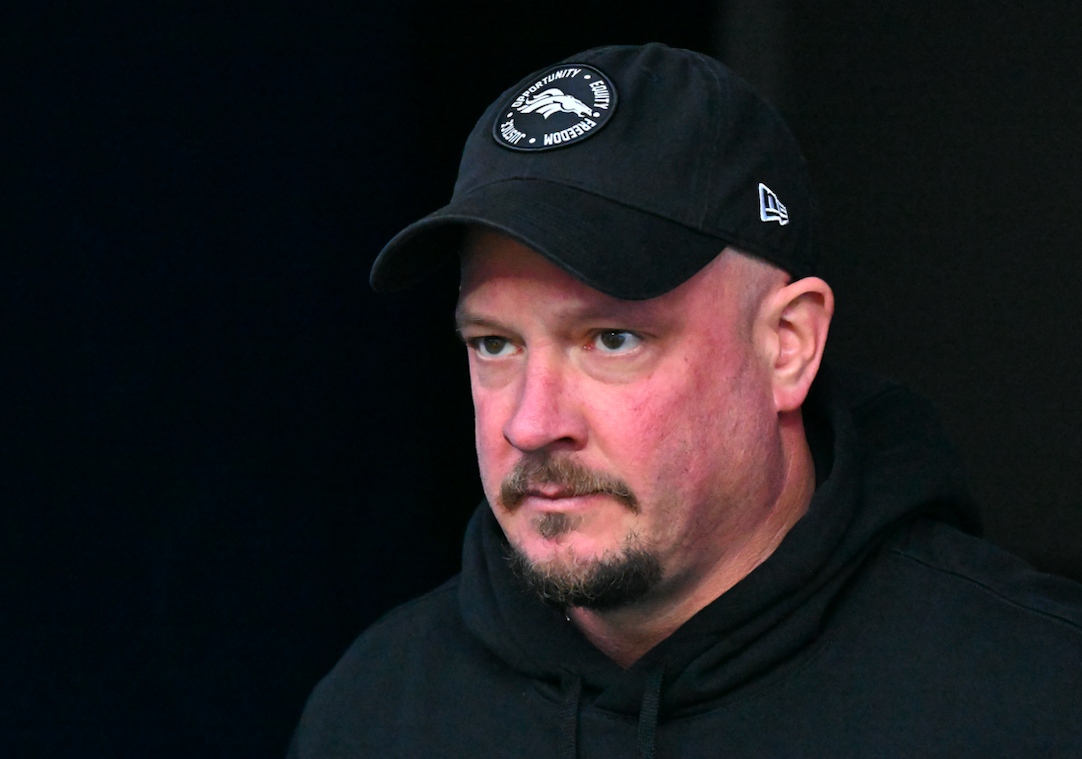O.J. Simpson died of cancer on Wednesday at the age of 76. The former college and NFL legend is most known for the double murder trial in which he was ultimately acquitted of stabbing to death his ex-wife Nicole Brown Simpson and her boyfriend, Ronald Goldman, in Los Angeles in one of the most captivating and sensational trials in the history of American Justice.
Although he was never convicted of a crime in connection to those deaths, today a great percentage of the U.S. population who are familiar in some part with this crime believe he did it. To be certain, the dynamics of race and class played to the American psyche better than puppies, cheeseburgers, hip-hop and apple pie ever could. Journalism careers were created in the maelstrom of blood, guts and personality.
In 1997, a civil jury in California found ‘The Juice’ liable in the death of his ex-wife Nicole Brown Simpson and Ron Goldman. Goldman’s parents were awarded $8.5 million in compensatory damages.
“O.J. Got Away With It”
O.J. got away with it is the theme that still resonates to this day, but the beloved football star’s life would never be the same after that trial, that captivated people of all ages and made Court TV the daily go-to channel.
OJ’s brand took on a different nature. He was no longer a celebrated Heisman Trophy winner and NFL icon, who did Hertz commercials, running through the airport and leaping over luggage. He was still a celebrity but carried the reputation of being a killer and all of the sensationalism and venom that comes with it.
There were documentaries and movies made that introduced generations after the mid 90s to the man who might have executed the perfect crime.
Very little is mentioned of the man who was one of the best running backs to ever do it, accumulating 11,236 rushing yards, 2,142 receiving yards and 990 kick return yards, resulting in a total of 14,368 all-purpose yards in his NFL career.
Simpson’s shining moment on the gridiron and the final affirmation of his generational greatness came 21 years prior to his life changing course in 1073. Simpson broke Jim Brown’s single-season rushing record by amassing 2,003 rushing yards and averaging 143.1 rushing yards per game for the Buffalo Bills that season. It remains the highest mark in history.
School Daze: O.J. Simpson Trial Captivated HBCU Campuses
I was a college student when the O.J trial jumped off. In fact, the gripping “30-for-30” documentary, “O.J.: Made in America,” brought back memories of my college days and the way his murder trial affected every aspect of African-American life for an entire school year.
Who can forget that 60-mile low-speed pursuit across Orange County freeways in the infamous white Bronco with his boy Al Cowlings handling the wheel, and the subsequent arrest on murder charges?
Then the eight-month long trial that had the world at a standstill, which somehow became a referendum on the state of race relations in this country instead of what it was — a tragedy inflicted by a some sick individual or group of individuals.
I was a college student at an HBCU back in ’94 and 95 when the O.J. trial was on TV every day. It was almost like the campus was on hold. Actually, the entire South was captivated by the many intriguing, racially charged, scandalous and horrific elements of the trial, which were captured on Court TV.
It was one of the most enthralling criminal trials in American History. And throughout the course of it, any off-campus crib you walked into had a crew of people either cutting class, or were between class, and they were focused on the O.J. trial. Everything during the day was scheduled around the trial.
“If (The Glove) Doesn’t Fit You Must Acquit”
Of course, being that the school was predominantly African American, everyone was pulling for O.J. and Johnnie Cochran to prove O.J.’s innocence. I’m sure in the back of the minds of many a militant, socially and historically conscious college student, it didn’t matter if O.J. was innocent or guilty.
The dynamics of the trial took on a White vs. Black character. Some of my schoolmates were simply rooting for Team Cochran to somehow get O.J. off, proving that the number one defense attorney in the world was of African-American descent.
The majority of Black were appalled by O.J.s actions if true and most didn’t believe he was innocent, but O.J.’s victory was more symbolic than about the man and his character as a former star athlete turned accused abuser and killer.
It was an exhale for years of oppression and false convictions perpetrated upon minority males.
Finally, we had a victory against what many perceived to be an oppressive American judicial system.

(Photo Credit: USA Today)
I also remember the verdict. I moved back home to New York and was working part-time that fall semester as a dispatcher at a security firm in Hollis, Queens. When the verdict was announced, people ran out of their homes and businesses and celebrated in the streets throughout the predominantly Black neighborhood.
But on television, we saw the reactions of non-blacks. One of horror, disbelief and anger. Most considered it the worst failure of justice in American judicial history. They said O.J. was given preferential treatment by the jury because he was a football legend. Fact of the matter is, he was still Black and everybody expected a conviction.
Reality TV Meets Real Life: CourtTV Blows Up and Careers Made
As much as I remember the racial elements in the trial and the brilliant legal combat executed by both sides, the O.J. trial represented the moment when reality TV met real life and it became acceptable for people to became stars off of another’s personal tragedies and burdens.
The world still hasn’t come back to its senses yet. Race relations between the LAPD and Los Angeles residents were very strained at that time. Only two years earlier, riots followed the acquittal of four LAPD officers who were videotaped beating Rodney King, so African-American youth in general were very aware of instances of police brutality and subtle and overt racism.
With the slew of killings involving young unarmed Black males by cops in the past decade, not much has changed since the O.J. trial.
He will go to his grave still considered a murderer. Barely remembered as a football icon. O.J.’s death reinvigorates memories of an unforgettable time in the life of many Americans. It’s still the “Trial of the Century” and it was the one time when everyone is in agreement that a brother beat the system.
The People v. O.J. Simpson
The television series, “The People v. O.J. Simpson” debuted with rave reviews and an all-star cast featuring Cuba Gooding, Jr., Courtney Vance, John Travolta, Sarah Paulson, David Schwimmer and Kenneth Choi, among others, and directed by Anthony Hemingway and Ryan Murphy.
Like the high ratings FX enjoyed when the mini-series premiered, the actual trial and the subsequent media circus that ensued made a travesty out of what was supposed to be justice. The defense lawyers and prosecutors were popular household names. Judge Ito’s signature beard and glasses gained a celebrity unto themselves as well. Marsha Clark, Rob Kardashian, Johnnie Cochran, Mark Furman, F. Lee Bailey and many others gained infamy.
But what was not lost on the conscientious observer was the more theatrical the trial became, the more it seemed to favor the narrative of the defense.
And it was pretty hairy from the start. The moment O.J. was allowed to flee, albeit slowly, from LAPD in the Bronco the entire criminal justice system was beholden to nothing but theatrics. O.J. offering a $500,000 reward to find the real killers, Cochran’s “if the glove don’t fit, you must acquit,” the alleged racism of LAPD officer Mark Fuhrman, Kato Kaelin’s hair, the conspiracy that said Nicole was killed by drug dealers whom she owed money to, all a sick, sad freak show.
Like watching a slow motion train wreck, it was impossible for the world to look away. Then, once the verdict of acquittal was announced, the nasty underbelly of our country was revealed as white people were way too mad that a Black man appeared to have gotten away with murdering two white people, and Black America was way too happy about O.J., who had long since shunned the affections of the African-American community, had gotten off.
You can say that O.J. never changed. The older he got, the more he became a cult figure. Two months before his death, he was happy, speaking to his fans on social media who reached out to ask about rumors of his declining health and give his predictions for the Super Bowl. He even had a weekly appearance on the “It Is What It Is” sports show hosted by rappers Cam’ron and Mase.
At the end of the day, Orenthal James Simpson’s life was a test of human character. A test on race, class and privilege. One we all probably failed. With reality television now fully merged with real life on social media and new developing forms of instant communication, we will never have a moment as polarizing and unbelievable as that trial. We also haven’t seen a running back who executed his duty with the grace, power, speed and overall artistry of The Juice.
RIP



